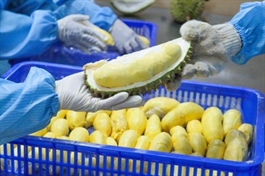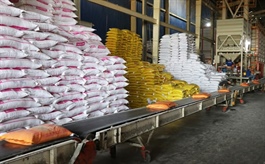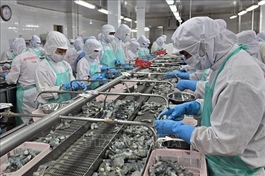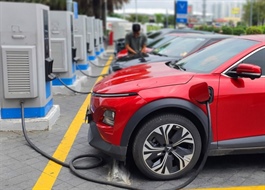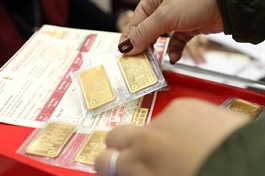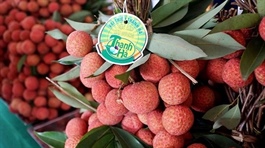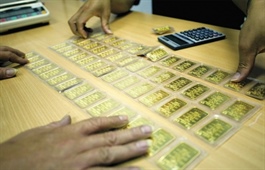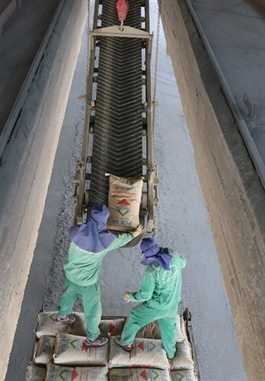Coffee sector braces for EU Deforestation Law
Coffee sector braces for EU Deforestation Law
Currently, the EU accounts for around 40 per cent of Việt Nam's total coffee exports, making it the country's largest consumer.
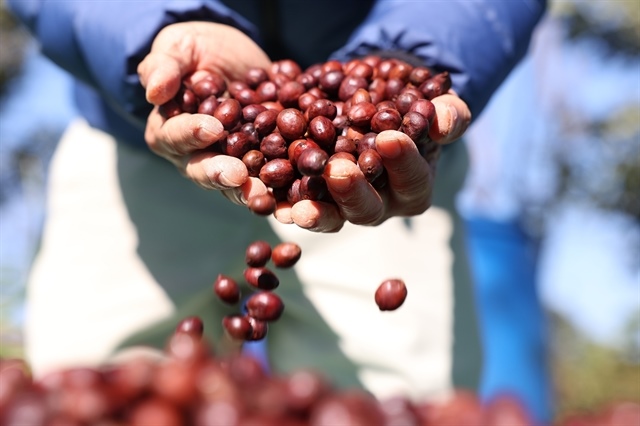
Specialty coffee from Aeroco Coffee farm is available in markets in Europe. — VNA/VNS Photos Tuấn Anh |
Experts have warned that Việt Nam’s coffee sector, which depends heavily on the European market, could face significant export challenges as the European Union’s Anti-Deforestation Regulation (EUDR) takes effect in late 2025.
Currently, the European Union (EU) accounts for around 40 per cent of Việt Nam's total coffee exports, making it the country's largest consumer.
The EUDR mandates that agricultural products like coffee imported into the EU must not contribute to deforestation or forest degradation after December 31, 2020, comply with local laws, and be traceable to individual plots.
This puts farmers at the centre of compliance efforts. However, most coffee growers currently face significant challenges in meeting these strict requirements.
A 2025 survey by Forest Trends and Tavina of 95 households in key provinces revealed that over half do not keep harvest records. With average landholdings of 1.9-2.3ha split across multiple small plots, tracing origins is complex.
A major hurdle is land use legality, as many households, especially ethnic minorities, lack official land use certificates despite cultivating the land for generations.
While 96 per cent of plots were farmed before 2020, qualifying under EUDR’s deforestation criteria, the absence of legal documentation prevents these lands from being included in compliance dossiers.
Tô Xuân Phúc, executive director of the Policy, Trade, and Finance Programme of Forest Trends, said without specific support mechanisms for traceability at the farm level, many coffee producers risk failing to meet EUDR requirements and being excluded from the EU export supply chain.
Phúc told baotintuc.vn that while the survey reflects only a small, non-representative sample of coffee households, the data gathered highlight key aspects of smallholder production practices relevant to EUDR compliance.
The survey found that only around 10 per cent of households engage in sustainable coffee programmes connected to businesses. This underscores the crucial role of buyers, processors, and exporters - not just as market intermediaries but as partners who invest in and support farmers’ traceability and legal compliance efforts.
Nguyễn Trung Kiên from the Ministry of Agriculture and Environment’s Department of International Cooperation said that before the EUDR was officially enacted, Vietnamese stakeholders proactively engaged with the EU delegation to gather information.
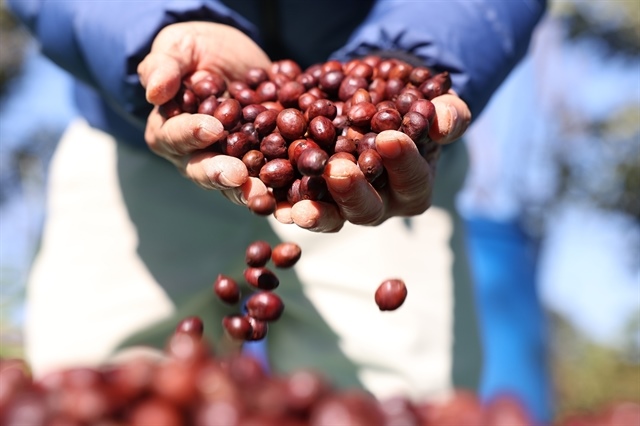
Specialty coffee from Aeroco Coffee farm is available in markets in Europe. — VNA/VNS Photos Tuấn Anh |
After the regulation’s formal adoption, the ministry issued an action plan directing provinces to implement the rules, with many localities extending awareness efforts to the commune level.
Thanks to strong coordination among the Government, businesses, industry groups, and farmers, the EU classified Việt Nam as a 'low risk' country under the EUDR - a competitive edge over nations like Indonesia and Brazil, which are deemed 'standard risk'. Nonetheless, Việt Nam must still fully meet all regulatory requirements to maintain its status.
While the EU does not require individual households to hold land use rights certificates, it does demand proof of land legality. Since verifying each plot at the commune level would be time-consuming and burdensome, verification at a broader regional or local scale may offer a more practical solution, Kiên told baotintuc.vn.
Recently, the Ministry of Agriculture and Environment has worked closely with the EU, industry associations, and international organisations like IDH and Forest Trends to guide stakeholders. Several companies, including Cienco, Vĩnh Hiêp, and Intimex, have proactively developed traceability systems that collect data from farming households.
Kiên said Việt Nam is making efforts to adapt to the EUDR, but to sustain its competitive edge and ensure long-term access to the EU market, further improvements are needed in data systems, forest land boundary mapping, unified traceability platforms, and enhanced coordination among all parties involved.
According to Bạch Thanh Tuấn, a representative of the Vietnam Coffee and Cocoa Association, even before the EUDR was enacted, over 30 per cent of Việt Nam’s coffee plantations were certified under sustainability standards such as 4C, UTZ, and Rainforest Alliance. This strong foundation helps the country’s coffee industry adapt quickly to the new regulations.
Phúc from Forest Trends noted that while not all coffee households export directly to the EU, traceability is becoming a mandatory requirement in key markets.
This shift demands farmers adopt traceable farming practices, which require significant investments of time and effort as well as support from businesses and Government agencies.
Experts recommend developing simple, accessible tools for farmers like crop record books, pre-printed sales forms, and user-friendly mobile apps to address traceability challenges.
They also urge local authorities to establish mechanisms confirming the legality of households cultivating land without land use certificates, ensuring stable production and preventing supply chain disruptions.
- 19:47 05/08/2025







